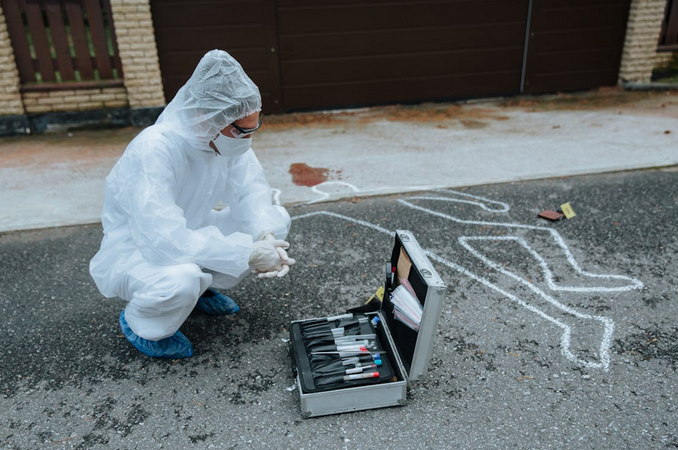service

Health
Why Suicide Cleanup Requires Professional Help: Protecting Your Health and Well-Being
Dealing with the aftermath of a traumatic event like suicide is incredibly challenging, and in the midst of grief, many may not immediately consider the risks involved in the cleanup process. Suicide cleanup isn’t just about removing visible signs of what occurred; it involves handling biohazard materials and navigating both physical and emotional risks that can impact health and well-being. This is why professional cleanup services play a vital role in such situations. In this article, we’ll explore why handling Suicide Cleanup is best left to trained professionals, the risks involved for those without the right training, and how professional services can offer a safer and more supportive approach.
The Health Risks Involved in Suicide Cleanup
Suicide cleanup involves more than general cleaning supplies and techniques. The scene may contain biohazardous materials, such as blood and bodily fluids, which can pose health risks if not handled properly. Here are some key risks that make professional help essential:
Exposure to Bloodborne Pathogens
Bodily fluids can carry pathogens like Hepatitis B, Hepatitis C, and HIV. Even a small amount of exposure can lead to serious health complications if pathogens come into contact with open cuts or mucous membranes. Professional cleaners are trained in biohazard protocols, using personal protective equipment (PPE) to minimize these risks.
Respiratory Hazards
In some cases, bacteria or airborne contaminants can be present, which could lead to respiratory issues if inhaled. Professional teams use high-quality respirators and advanced cleaning methods to control airborne risks, ensuring the air quality is restored to safe levels.
Use of Strong Chemicals
Biohazard scenes require strong disinfectants that must be used with caution. These chemicals can cause skin irritation, eye damage, or respiratory problems without proper protective equipment and knowledge of handling procedures. Professionals are trained to use these cleaning agents safely, keeping exposure risks to a minimum.
Risk of Physical Injury
Depending on the environment, there may be structural hazards or broken materials at the scene. Professional cleaners know how to identify and manage these risks, ensuring that the area is thoroughly inspected and cleaned in a way that prioritizes everyone’s safety.
How Professional Suicide Cleanup Services Protect Health and Well-Being

Suicide cleanup services are more than just cleaning professionals. They’re specialists who understand both the technical and emotional dimensions of trauma cleanup. Here’s how they protect the health and well-being of families:
Adherence to Biohazard Safety Standards
Professional cleaners follow strict biohazard guidelines set by OSHA and the CDC. They use medical-grade disinfectants, high-quality PPE, and specialized equipment to sanitize every aspect of the area, eliminating bacteria, pathogens, and odors in a way that’s safe for future use.
Specialized Training and Equipment
With the right tools and training, professionals can remove all traces of biohazards that may not be visible to the naked eye. They use advanced equipment to detect and clean any remnants, ensuring a level of thoroughness that household cleaning supplies can’t achieve.
Compassionate Support and Privacy
Suicide cleanup professionals understand that families are going through an extremely difficult time. They are trained to act with sensitivity, maintain privacy, and work quietly so families can grieve without feeling overwhelmed by the cleanup process.
Why DIY Suicide Cleanup Isn’t Recommended
While it may seem like managing the cleanup independently could save time or money, the risks involved often outweigh these potential benefits. Here’s why attempting a DIY approach can be more challenging than expected:
- Lack of Proper PPE and Knowledge: Most people don’t have the professional-grade protective equipment or biohazard knowledge necessary to handle this kind of cleanup safely.
- Emotional Strain: The process can be retraumatizing, prolonging grief and emotional distress for those directly affected.
- Incomplete Cleaning: Without specialized training, it’s difficult to ensure all biohazards are removed effectively. This can lead to health risks or future problems if pathogens remain in the environment.
Attempting to clean without proper tools or training could inadvertently expose people to health risks and emotional trauma, which is why leaving it to trained professionals is so important.
Experiencing a loss is difficult enough without having to manage the physical and emotional risks of suicide cleanup. Professional cleanup services provide a necessary service, protecting health, respecting privacy, and allowing families the space they need to grieve and begin healing.…
Read More